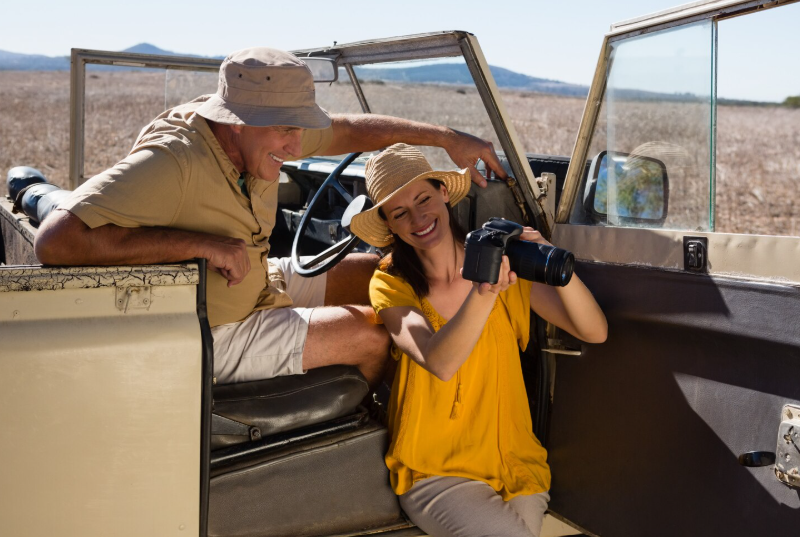Luxury Safari-Style Adventures in Europe
Introduction
Safari-style travel in Europe blends the romance of remote landscapes with the refinement of five-star hospitality. Far from the stereotypical image of African plains, European safari experiences focus on intimate wildlife encounters, dramatic scenery and curated cultural immersion — all delivered with discretion, safety, and luxury. For discerning travelers who value privacy, authenticity and conservation-led travel, Europe offers a surprising palette of safari-style possibilities: from the wild heathlands of the Iberian Peninsula to the boreal expanses of Lapland and the rugged estates of the Carpathians.
What Defines a European Luxury Safari?
A European luxury safari emphasizes three components: exceptional wildlife encounters tailored to small groups, elevated accommodation (tented camps, renovated manor houses and boutique lodges), and expert local guides who deliver meaningful interpretation. Unlike mass tourism, these trips prioritize personalization: private vehicle transfers, bespoke itineraries, culinary experiences rooted in terroir, and flexible schedules timed to optimize wildlife activity and light for photography.
Top Regions for Safari-Style Experiences
Iberian Peninsula: Spain and Portugal
The Iberian Peninsula boasts a wealth of unique fauna and intimate private reserves. Southern Spain’s Doñana National Park and surrounding private estates are renowned for birding and Iberian fauna; guests may spot flamingos, imperial eagles and seasonal migrations. In Portugal and western Spain, private estates offer guided drives and horseback excursions to see Iberian red deer, wild boar and, with luck, elusive Iberian lynx in conservation-led viewing programs. Many operators combine these outings with wine tastings and farm-to-table dining.
Romania & The Carpathians
Romania’s Carpathian range is one of Europe’s last strongholds for large carnivores. Private wildlife reserves and carefully managed tours allow small groups to track brown bears, wolves and lynx with minimal disturbance. Luxury options include restored hunting lodges and private villas with expert naturalists, night-vision observation hides, and tailored photography safaris that prioritize ethical observation and local conservation partnerships.
Scandinavia: Lapland and Arctic Safaris
In northern Scandinavia, safari-style adventures become winter and summer polar experiences. Guests can pursue reindeer and moose, join guided snowmobile or husky safaris, and witness the northern lights from heated glass-roofed cabins. Summer months deliver midnight sun opportunities for extended daylight wildlife watching, while responsible operators emphasize sustainability and cultural exchange with Sámi communities.
United Kingdom & Ireland: Highland and Moorland Safaris
The highlands of Scotland and the moors of Ireland offer raw landscapes and dramatic wildlife. Luxury stag-watching, red deer rut tours, and seabird coastal safaris pair well with private estates and castle stays. Top-tier operators provide expert trackers, bespoke culinary menus emphasizing local game and seafood, and exclusive access to private conservation land.
Signature Activities & Curated Experiences
- Guided photography safaris: Tailored to camera pros and enthusiasts, with blinds/hides and post-safari editing tips from guides.
- Private game drives & horseback outings: Smaller vehicles and experienced riders for safe, up-close encounters.
- Birding and migration tours: Seasonal excursions to renowned flyways with specialist ornithologists.
- Night safaris and hides: Expert-led nocturnal watching for species active after dusk, using ethical lighting and observation practices.
- Cultural integration: Meetings with local conservationists, shepherds, or Sámi hosts to deepen context and support community-based tourism.
Accommodation & Service Standards
Luxury safari-style accommodations in Europe range from upscale tented camps to historic country houses reimagined for modern comfort. Guests should expect private en suite facilities, refined cuisine sourced locally, and service levels that respect privacy and security. Many properties offer wellness services—spa treatments, guided walks and private chefs—alongside concierge support for logistics and bespoke experiences.
Responsible Travel and Conservation Considerations
Ethical tourism is fundamental to these offerings. Look for operators that invest in local conservation, contribute to research, and enforce strict viewing distances to avoid animal habituation. Certifications, transparent partnerships with NGOs, and clear wildlife observation protocols indicate a provider’s commitment to sustainability. When traveling, guests can minimize impact by following guide instructions, reducing single-use plastics, and supporting local supply chains.
Logistics, Best Seasons, and Cost Considerations
Timing and logistics vary by region: autumn is optimal for deer rutting in northern Europe, spring and early summer bring migratory birds across Iberia, and winter opens Arctic opportunities in Scandinavia. Many luxury experiences require advance booking—especially private hides, specialist guides, or conservation-led tours. Costs reflect the bespoke nature of the service: private vehicle hire, expert guides, exclusive access and high-end accommodation command premium pricing. For corporate or high-net-worth clients, retainer arrangements and bespoke multi-day packages are common.
Practical Tips for the Discerning Traveler
- Pack layered clothing suitable for variable weather and early-morning starts; quality optics and a good camera are essential for wildlife observation.
- Arrange private transfers and confirm road conditions—some reserves require 4×4 access or short transfers by boat.
- Discuss accessibility and mobility requirements with providers in advance to tailor the itinerary.
- Ensure all travel permits and insurance (including medical and trip interruption) are in place, especially for remote regions.
Learning New Languages as an Expat: Strategies for Quick Success
Relocating abroad accelerates language acquisition when approached strategically. Build daily routines that force practical use—ordering food, navigating transport, or handling administrative tasks—and complement them with structured lessons from tutors or language apps. Engage in language exchanges, join local interest groups, and consume media in the target language (news, podcasts, television) to strengthen listening comprehension. Set achievable micro-goals, track progress, and prioritize conversational fluency over perfection; consistent, real-world practice often outpaces classroom-only study.
Stay Connected for More Travel and Lifestyle Inspiration. For more insights into travel, culture, and lifestyle tips, follow me on Instagram
@salvadorordorica. If you’re seeking professional translation and localization services to enhance your global ventures, visit The Spanish Group — your trusted partner in bridging cultures worldwide.



